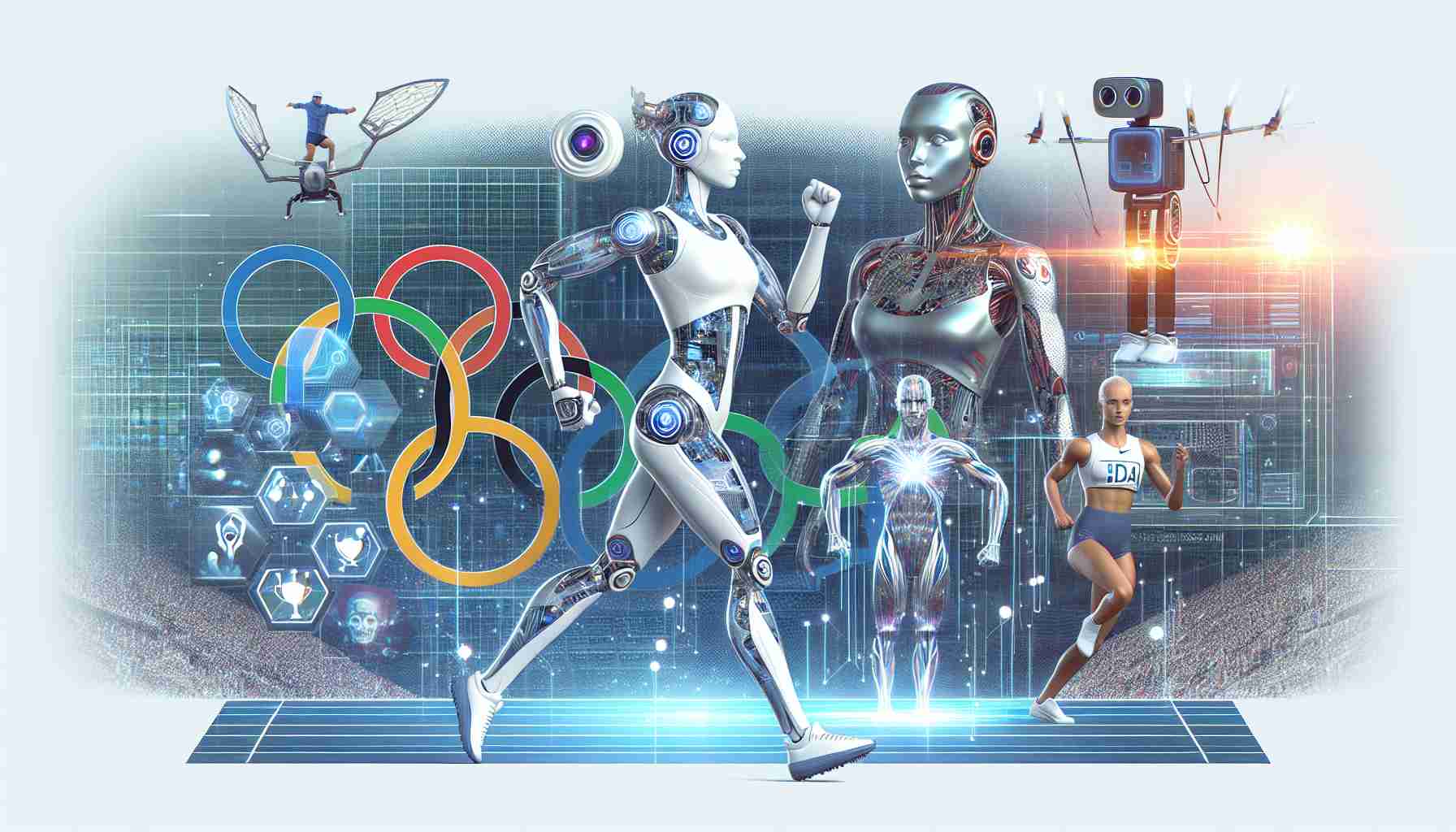In a bold move to integrate technology with sports, the International Olympic Committee (IOC) has initiated an endeavor into the future of sporting events with the introduction of the ‘Olympic AI Agenda.’ This strategic venture is paved with the ambition of transforming various aspects of sports through detailed analysis of vast amounts of data by artificial intelligence. The potential changes span across fields such as talent identification, injury recovery, and support for referees.
At a recent symposium in London, several practical applications of AI in sports were highlighted. Prominently, it was shown that in diving competitions at the upcoming Paris Olympics, real-time information such as number and speed of rotations could be provided to television audiences within 10 seconds. In gymnastics and trampolining, AI is already assisting with scoring, a development that has received praise for its usefulness and potential to eliminate errors from the renowned 1976 Montreal Olympics gold medalist Nadia Comaneci.
As the IOC positions the Olympic AI Agenda at the core of its new strategic pillars, it establishes critical areas of focus. It aims to support athletes, ensure fair competition, sustain safe sports practices, guarantee equal access to AI resources, and emphasize sustainability in the operations of the Olympic and Paralympic Games. This step towards incorporating AI reflects a commitment to modernize the athletic experience for competitors and viewers alike.
Enhanced Performance and Training: AI can revolutionize athletic training and performance by analyzing the biomechanics of athletes, monitoring training loads, and optimizing performance strategies. For instance, wearable technology can track athletes’ movements and physiological data, allowing for personalized training programs and preventing injuries.
Refinement in Officiating and Judging: AI can aid in assessing performance with greater accuracy, minimizing human error in judging. Technologies like computer vision and machine learning analyze athletes’ moves in detail, providing a more consistent and fair evaluation. This could also extend to detecting infractions or ensuring adherence to rules in various sports.
Improvements in Fan Engagement: AI can personalize the way fans interact with sports content by offering tailored insights, predictions, and experiences. This might include automatic generation of highlights, advanced statistics, and even virtual reality (VR) experiences that give fans a unique viewpoint of the action.
Questions and Answers:
– What challenges does AI integration in sports face? Privacy concerns regarding the use of athletes’ data, the need for significant investment in technology and infrastructure, potential resistance from traditionalists, and ensuring the technology’s fairness and unbiased nature are some challenges.
– What controversies might arise? The potential for job displacement of human judges and referees, ethical dilemmas over AI’s role in decision-making, and the question of whether AI could favor certain athletes or teams due to biases in data are possible controversies.
Advantages and Disadvantages:
– Advantages: Improvements in athlete training and performance, precision in officiating, enriched fan engagement, prevention of injuries, and an overall modernized view of sporting events.
– Disadvantages: High costs of technology implementation, data privacy concerns, potential reduction in human roles, and the need for robust regulations to manage ethical and bias issues.
Related to the International Olympic Committee and their initiative, you can find more information on their official website, International Olympic Committee. Ensure all network protocols, like URLs, are correct and can be accessed when providing links.
The source of the article is from the blog trebujena.net

